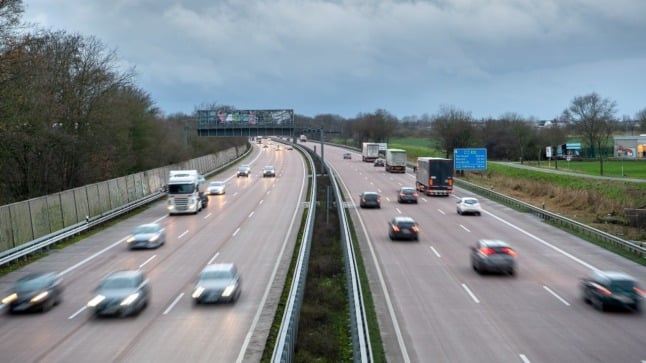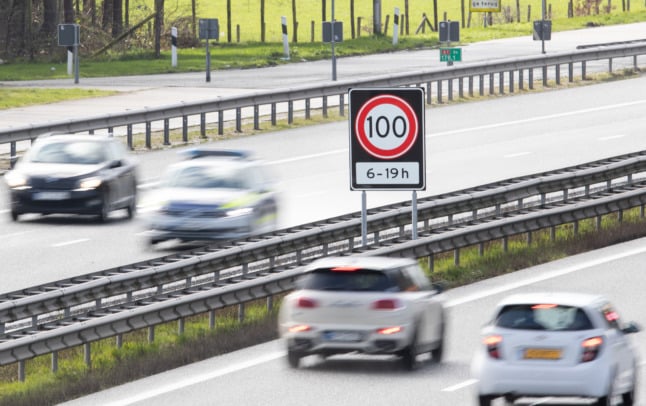It is just one short sentence but it will make car lovers breathe a sigh of relief while environmentalists will groan.
The agreement concluded by the Greens, Social Democrats and FDP as a basis for coalition talks states that “there will be no general speed limit.”
That sentence means that the Green party gave up on their manifesto pledge to impose a general 130 kilometre per hour speed limit on German highways.
“We couldn’t get the speed limit through,” Green co-leader Robert Habeck admitted on Friday. “In other places, we are very pleased with how the text has come out.”
The liberal FDP were dead set against such a limit on the Autobahns which are famed around the world as being some of the only highways where car drivers can drive as fast as they want without breaking the law.
READ ALSO: Will Germany soon introduce a speed limit?
SPD leader Olaf Scholz is known to drive a BMW, leading to speculation that he was reluctant to impose a limit, despite his party’s official stance in favour of restricting speeds.
Environmental campaigners point to a study produced by Germany’s own Federal Environment Agency, which concluded that 1.9 million tonnes of carbon emissions could be saved every year by imposing a 130 km/h limit.
Others have suggested that a general speed limit would help reduce accidents and save lives although many of the most dangerous stretches of autobahn already have limits in place.
According to a poll from earlier this year almost two thirds (64 percent) of Germans are in favour of introducing a general Autobahn speed limit.
Rumours circulating in the days after the September 26th election suggested the FDP were prepared to budge on the speed limit as long as the Greens would consider entering formal coalition talks with the conservative CDU. The FDP match up better with the CDU than the SPD on most economic issues.
The Greens may therefore have considered abandoning speed limits as an acceptable price to pay to secure more left-wing policies elsewhere.
The decision is not yet set in stone. The negotiators will now seek the approval of their own parties before entering formal talks on the basis of the published proposal.
SEE ALSO: What Germany’s coalition plans mean for immigration and citizenship



 Please whitelist us to continue reading.
Please whitelist us to continue reading.
Another ‘Statistics’ company with experience in fields other than to do with German Motorways. Created/Owned by an ‘entrepreneur” of Belarus/ USSR origins, based in America.
Statistical forecasters are coming out of the woodwork, (a somewhat lucrative business perhaps).